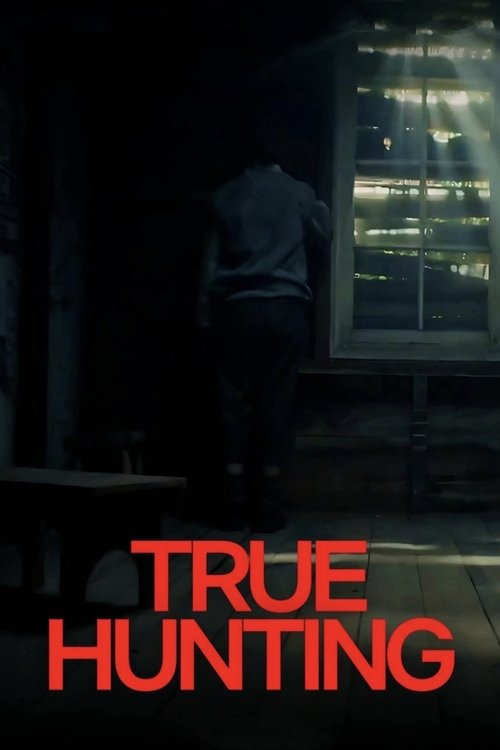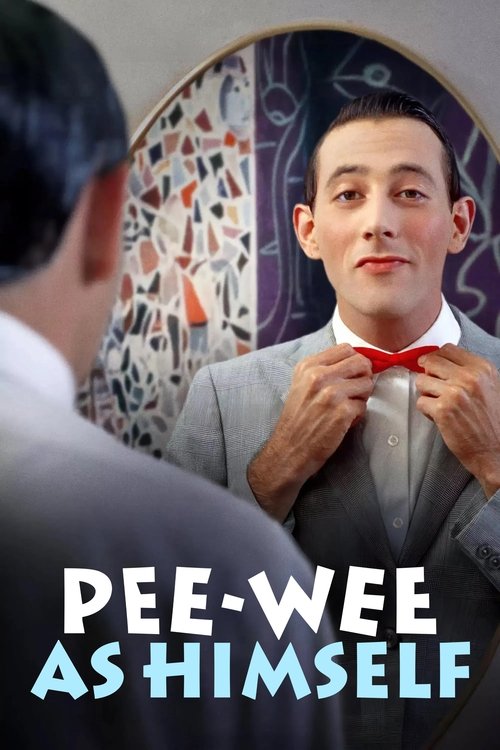
Ask Your Own Question
What is the plot?
The TV mini-series "Pee-wee as Himself" (2025) is a two-part documentary that chronicles the life and career of Paul Reubens, the creator and performer behind the iconic character Pee-wee Herman. The story unfolds primarily through extensive interviews with Reubens himself, interspersed with archival footage and commentary from friends and collaborators.
The documentary begins by exploring Paul Reubens' early life in Sarasota, Florida, where he grew up in a home connected to circus performers. It details his childhood fascination with performance and fame, highlighting his early inspirations drawn from 1950s children's television. This sequence establishes the foundation for his later creation of Pee-wee Herman, a quirky, man-child character that would become his signature.
Next, the film follows Reubens' journey into the world of comedy and performance, focusing on his time with the Groundlings improv troupe in Los Angeles. It shows how he developed the Pee-wee character during this period, honing its unique blend of irony, sincerity, and nostalgia. The narrative then moves to his breakthrough moments, including regular appearances on major talk shows like David Letterman and The Tonight Show, culminating in the success of the 1985 film "Pee-wee's Big Adventure." This part also reveals Reubens' intense hunger for fame and his jealousy over the credit given to director Tim Burton for the film's success, illustrating his desire for control over his work.
The documentary then shifts to darker chapters in Reubens' life. It covers his 1991 arrest in a Florida sex shop, an event that severely damaged his career. The film details the subsequent media frenzy and a witch-hunt investigation by the LAPD, which included unfounded rumors of pedophilia. These sequences depict the public and personal fallout from these incidents, showing how Reubens and his close circle of friends and family supported him through these challenges.
As the story progresses, the documentary reveals that Reubens had been privately battling cancer for six years before his death in 2023, a fact he kept hidden from the filmmakers and most people around him. This revelation adds a poignant layer to the narrative, especially as it coincides with Reubens' increasing withdrawal from the documentary production. The film captures moments of tension between Reubens and director Matt Wolf, as Reubens struggles to maintain control over how his story is told, often engaging in playful but pointed exchanges with Wolf about the nature of self-representation and narrative authority.
Throughout the documentary, Reubens reflects on his identity, the duality between himself and Pee-wee Herman, and his resistance to being portrayed solely as a victim or tragic figure. The film concludes with a touching portrait of Reubens as a complex, deeply private artist who rarely revealed his true self publicly but left a lasting impact on pop culture. The final scenes underscore the bittersweet nature of his life story--a rise to fame, a fall from grace, and a resilient return, all ending too soon due to his untimely death.
More TV Shows Like This
Browse All TV Shows →
What is the ending?
The ending of the 2025 HBO documentary Pee-wee as Himself features Paul Reubens delivering his final thoughts in a poignant, intimate scene recorded just one day before his death, serving as a heartfelt farewell to fans and a reflection on his life and legacy.
In the final sequence of Pee-wee as Himself, the documentary unfolds chronologically through extensive interviews and archival footage, culminating in a deeply personal moment. After exploring Reubens' rise to fame as Pee-wee Herman, his creative control struggles, and his private battle with cancer, the film reaches its emotional conclusion. Director Matt Wolf had conducted 40 hours of interviews with Reubens, who was often resistant and controlling about how his story was told. The documentary reveals Reubens' philosophical musings on death and the significance of having the chance to "set the record straight" before passing.
As the film approaches its end, it touches on the darker chapters of Reubens' life, including his 1991 arrest, but the actor withdrew from the project before these parts were fully explored. The final scene is a dramatic and intimate recording of Reubens' last reflections, made just a day before he died from acute myelogenous leukemia and metastatic lung cancer in 2023 at age 70. This moment serves as his farewell, blending the persona of Pee-wee Herman with the man behind the character.
Regarding the fate of the main participant, Paul Reubens himself, the documentary closes with his peaceful passing, leaving behind a legacy both as the beloved Pee-wee Herman and as a complex, private individual. The film does not focus on other characters in a traditional narrative sense, as it is a documentary centered on Reubens' life and persona rather than a fictional story with multiple character arcs.
Thus, the ending is a solemn, reflective farewell from Paul Reubens, captured in his own words, marking the final bow of a unique entertainer who lived much of his public life through the character of Pee-wee Herman.
Is there a post-credit scene?
Yes, the 2025 TV mini-series "Pee-wee as Himself" includes a post-credit scene. It features the final audio recording of Paul Reubens, the actor behind Pee-wee Herman, made the day before he died. In this poignant moment, Reubens' voice is weak and shaking, expressing exhaustion and reflecting on his legacy, the public's perception of him, and the contrast between his public persona and his true self. This final confessional serves as a powerful and emotional closing to the documentary.
What is the nature of the relationship between Paul Reubens and his Pee-wee Herman character as explored in the show?
The show explores the complex relationship between Paul Reubens and his Pee-wee Herman character by interweaving the man and the character, allowing viewers to see how Reubens often hid behind Pee-wee and how this duality shaped his life and career. It highlights the struggle of living publicly as a character while maintaining a private identity, showing the nuances of his humanity and the challenges of controlling his narrative.
How does the documentary depict Paul Reubens' struggle for control over his story and public image?
The documentary portrays Paul Reubens as someone who tries to control the narrative about his life and legacy, especially in the face of public scandals and media witch hunts. It shows his jousting with the director over the direction of the film and his desire to have the final word on his story, reflecting a broader theme of his lifelong struggle to manage how he is perceived by the public.
How does the documentary portray the relationship between Paul Reubens and his Pee-wee Herman character?
The documentary interweaves the persona of Pee-wee Herman with Paul Reubens the man, blurring the lines between character and creator. It presents their relationship as complex and layered, allowing viewers to decide what is real and what is performance. Reubens himself engages playfully with this ambiguity, reflecting a puckish, Pee-wee-like fencing with the interviewer.
What aspects of Paul Reubens' personal life are explored in 'Pee-wee as Himself'?
'Pee-wee as Himself' delves into the complexities of Paul Reubens' humanity, revealing layers of his personality beyond the Pee-wee Herman character. The documentary explores his private life, his struggles with public perception, and his experiences as a nonconformist, offering an honest and nuanced portrait that allows viewers to interpret him as a magical dreamer, a control freak, kindhearted, troubled, or a mixture of these traits.
What tone and style does 'Pee-wee as Himself' use to tell its story?
'Pee-wee as Himself' employs a truthful, real, and respectful tone, avoiding glorification or vilification. It uses extensive interviews, archival footage, and careful editing to create an intimate and honest slice-of-life portrait. The style is both illuminating and nostalgic, with music and editing choices that enhance the storytelling, making it feel like a trip down memory lane as well as a revealing personal journey.
Is this family friendly?
The TV show Pee-wee as Himself (2025) is a documentary-style two-part series that explores the life and career of Paul Reubens, the creator and performer behind the Pee-wee Herman character. It is not a typical children's show but rather a deep, personal portrait of Reubens, including his artistic influences, career highlights, and controversies.
Regarding family-friendliness, this series is not primarily aimed at children and contains mature themes. It discusses adult topics such as Reubens' 1991 arrest and the impact of media scrutiny on his life, which may be upsetting or inappropriate for children or sensitive viewers. The tone is reflective and sometimes somber, focusing on the complexities of Reubens as a person rather than the playful Pee-wee Herman character.
Potentially objectionable or upsetting aspects include:
- Discussion of adult legal issues and media scandals involving Reubens.
- Exploration of personal struggles and identity challenges.
- Some candid language and mature subject matter in interviews.
- The documentary's length and depth may be overwhelming or confusing for young children.
There are no indications of graphic content or explicit scenes, but the mature themes and biographical focus make it more suitable for adult audiences or older teens rather than young children or those sensitive to adult controversies.
In summary, Pee-wee as Himself is not family-friendly in the traditional sense of children's programming. It is a serious documentary about the man behind the character, containing mature and potentially upsetting content for children or sensitive viewers.




























